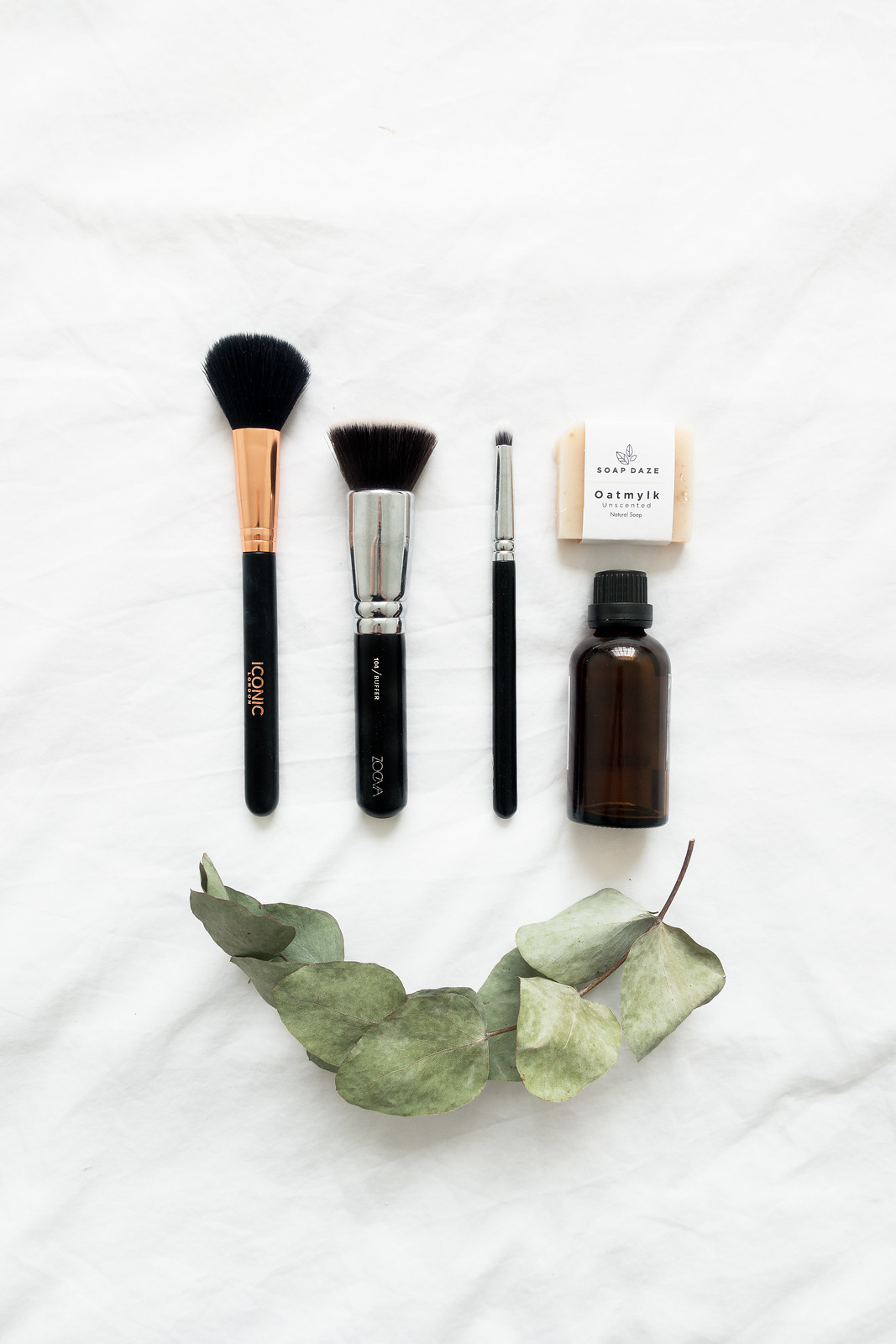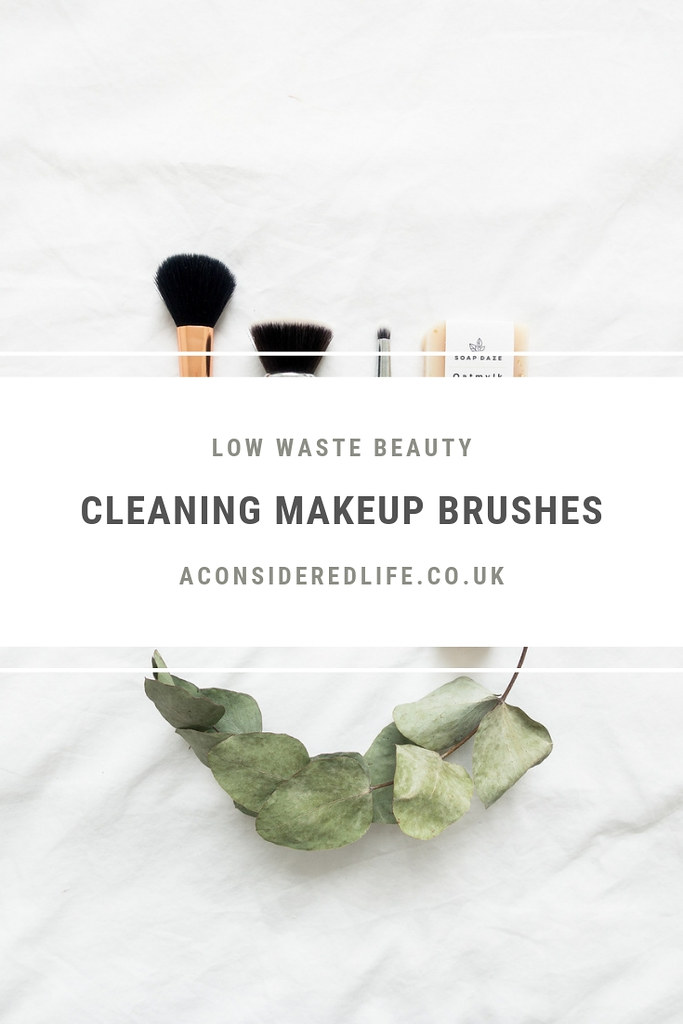
Quality make-up brushes don't come cheap so you'll want to take care of your investment. With the environment in mind, we want to make sure everything we bring into our lives is looked after so it lasts for years. A proper cleaning routine for your makeup brushes ensures their longevity while keeping them free from dirt and bacteria. Here's a low waste method for cleaning your brushes and keeping them in good condition so they last for years.
The Brushes
First up, the brushes. There are plenty of cruelty-free makeup brushes available including EcoTools, Zoeva, B. Makeup, and Iconic London. Almost every brush you buy, eco-friendly or not, will come with some form of plastic though either to protect or package them. The best option is to buy a set (avoid purchasing individually wrapped brushes), take care of them and use them until they fall apart. I use a mix of Zoeva and Iconic London brushes and I highly recommend them. If I had to pick between the two I'd choose Zoeva.
Cleaning Makeup Brushes
Brushes should be cleaned on a weekly basis and anything being used on your eyes or lips should be cleaned or at least spot-cleaned after each use to avoid transferring bacteria. It sounds like a lot of effort but it's really not especially if you limit the amount of brushes you use. It takes me, at most, twenty minutes a week to thoroughly clean a handful of makeup brushes.
What To Use
When it comes to cleaning, keep it simple. You really don't need any heavy duty bottled cleansers to clean your brushes, just a little soap and oil. If you have vinegar or vodka to hand you can add a little to the mix to disinfect or make a disinfecting toner. To make the toner, use one cup of warm water mixed with one teaspoon of apple cider vinegar and a thick slice of lemon. You could also mix one part water with one part vodka. Store the solution in a spray bottle and you can spray each brush after use and when you're cleaning to disinfect.
How To Clean
I use bar soap and sweet almond oil to clean my brushes. The oil lifts dirt from the brushes while the soap will clean the bristles. I cut a little piece off whatever soap is on my bathroom sink (or use a separate bar), swirl the brushes around on it with a drop of sweet almond oil, and lather up with a little water using the palm of my hand. If you have liquid soap, like Dr. Bronner's, mix two tablespoons with a tablespoon of sweet almond oil in a dish to dip your brushes in. Either add the vinegar or vodka to the dish or spray the brushes as you clean to disinfect.
Never wash your brushes in a bowl or jar of still water, always use running water; you won't be cleaning your brushes if you're dipping it into dirty water. Just remember to switch the tap off in between lathering. Rinse each brush keeping the brushes angled downwards to avoid water getting into the handle. Gently squeeze to draw out the soap and repeat the process until the water runs clear. If you're spot-cleaning, smaller brushes that dry quickly can be cleaned in the same way; larger brushes can be sprayed with a disinfecting toner in between uses.
Where To Dry
After cleaning I swirl my brushes on a clean dry towel to remove any excess water and then lay flat. Keep them out of the way somewhere dry. If the bathroom will be in use, move them elsewhere to avoid humidity making them damp again. They typically take 12-24 hours to completely dry although they may take longer. If you have a lot of brushes you might want to invest in a drying rack, although that could be a sign you need to declutter your tools!
Share them in the comments below.
Pin This Post:
